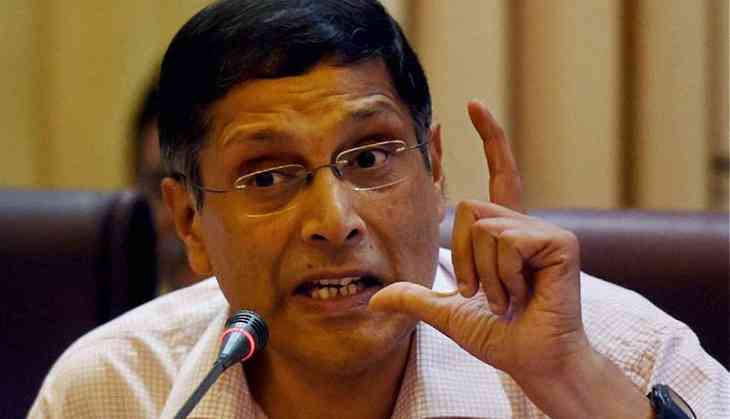Fiscal prudence panel: Chief Economic Advisor dissents, govt in a fix

The Government of India had set up a five-member Fiscal Responsibility and Budget Management panel to suggest a path to fiscal prudence for the future. But this panel's recommendations have now put the government in a fix, because they have been opposed by one of its own members – Chief Economic Advisor Arvind Subramanian.
The dissent note submitted by Subramanian on the recommendations raise some difficult questions for the government to mull over.
The other four members of the FRBM panel included former revenue secretary NK Singh, RBI governor Urjit Patel, former finance secretary Sumit Bose and Director of the National Institute of Public Finance and Policy, Rathin Roy.
The issue becomes even more important considering the fact that international ratings agencies have refused to upgrade India's sovereign credit rating, questioning the country's ability to maintain fiscally prudent economic policies.
The recommendations
The NK Singh-headed panel had made the following three recommendations:
1. Cutting the Centre's fiscal deficit to 2.5% of Gross Domestic Product (GDP) by 2023.
2. Adopting debt-to-GDP ratio as the new anchor of the fiscal policy, and controlling it at 60% , comprising of 40% for the Centre government as against the existing 49.4%, and 20% for the states as against the existing 21%.
3. Controlling the revenue deficit at 0.8% by 2022-2023.
Subramanian's dissent
Subramanian, in his dissent note, has said that instead of focusing on so many parameters, the government should actually focus only on controlling the primary deficit and eliminating it in a period of five years.
“This would ensure a declining debt trajectory, which would reassure investors, and ensure India's debt remains sustainable even when India's debt dynamics turn less favorable in the medium term.”
Primary deficit refers to the difference between the fiscal deficit of the current year and interest payments on previous borrowings.
Panel's rejoinder
The FRBM panel has issued a rejoinder to Subramanian's dissent note, questioning its practicality, and has argued, through equations and examples, that controlling primary deficit may not necessarily bring the government debt on a 'declining path'.
Experts' opinions
Abhijit Sen, member of the erstwhile Planning Commission, told Catch that the argument of the Chief Economic Advisor is “relevant, if the government wants to bring down its debt”.
In November 2016, S&P Global Ratings ruled out an upgrade for India over the next two years, and gave a stable outlook on the country's 'BBB-' long-term and 'A-3' short-term sovereign credit ratings.
In the absence of a credit ratings upgrade, the cost of debt to the Indian government remains high from foreign institutions, impacting India's growth prospects.
The Indian government has even criticised ratings agencies for not giving a ratings upgrade, despite India growing at an above 7% rate.
Madan Sabnavis, chief economist at Care Ratings, emphasised the need to focus on the debt-to-GDP ratio, to ensure that the government remains mindful of its increasing debt levels.
“You can introduce the primary deficit targets as well in the FRBM panel's recommendations, but we should be very clear that even then, the debt-to-GDP ratio is absolutely essential for maintaining the health of the economy. So, we can add a parameter in the form of primary deficit target for the government in its FRBM targets, but the focus on debt-to-GDP ratio is important,” he said.
However, Pronab Sen, India's former chief statistician, said: “The jury is still out on whether the government should focus only on the controlling the primary deficit in the country, or there should be other parameters as well, as suggested by the FRBM panel to achieve fiscal prudence for the Indian economy.”
Now, the onus is on the government to decide whether it goes according to the advice of with its Chief Economic Advisor or the rest of the panel members.
First published: 14 April 2017, 21:38 IST

